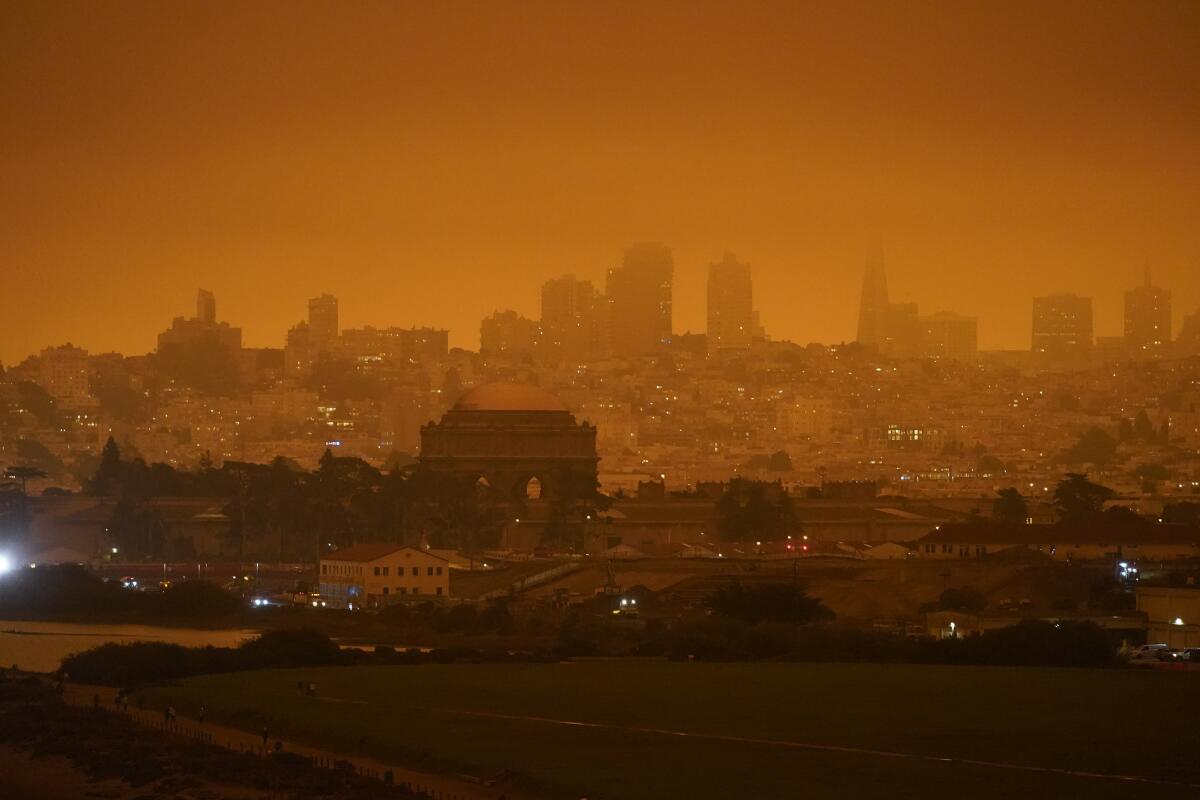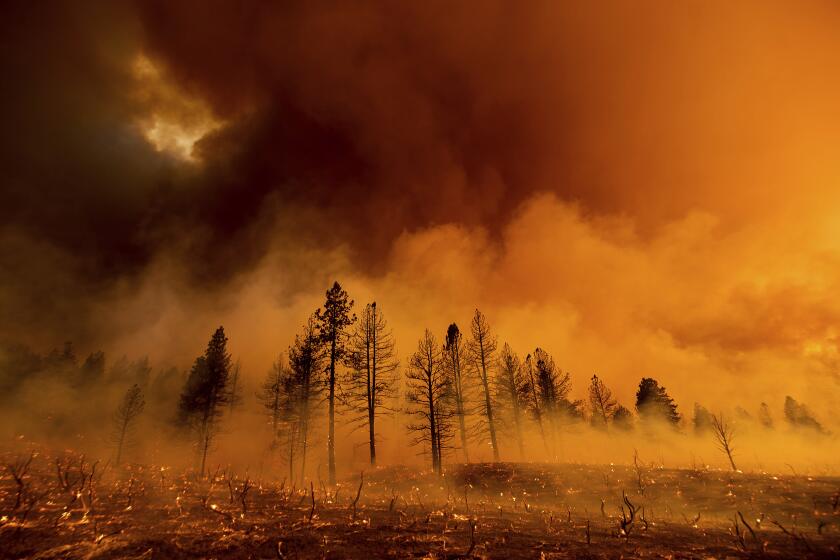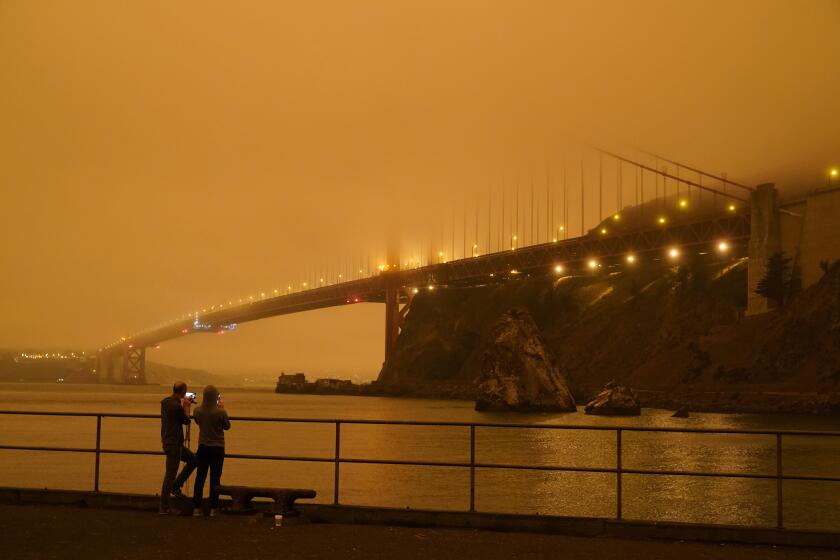How to protect yourself from wildfire smoke

- Share via
Wildfire season is already off to a record-breaking start, and experts are warning that smoke from the state’s biggest blazes may be as dangerous as the flames themselves.
In 2020, smoke from California’s wildfires blanketed the state in ash, soot and thick, hazy skies for weeks, with some plumes from the fires reaching as far away as Europe. Already this year, smoke from the region’s fires have spread across much of the U.S. and Canada.
“The ongoing wildfire threats are a dramatic reminder that climate change not only impacts the environment but has also become a pressing health issue,” the American Lung Assn. said in a recent post about wildfire smoke preparedness.
Researchers say last year’s fall fires may have caused as many as 3,000 deaths and 5,000 emergency room visits in California that wouldn’t have happened otherwise. One study found that wildfire smoke might contain “mind-bending” amounts of harmful bacteria and fungi.
And new studies this year found that smoke from burned homes and cars can contain dangerous amounts of lead and other toxic chemicals, and that exposure to any kind of wildfire smoke could be linked to an increased risk of contracting COVID-19.
As wildfires ravage hundreds of thousands of acres across California, more is being learned about the damaging effects of their smoke.
Wildfire smoke can be particularly dangerous for young children, older people and those with heart or lung issues, said John Balmes, a professor of medicine at UC San Francisco. But as California’s fires intensify, many residents of all ages are breathing in worrisome amounts of smoke.
“Wildfires are getting more frequent and larger,” Balmes said, “and everything relates to the dose that is inhaled.”
Here are some things you can do to reduce the harmful effects of wildfire smoke:
Stay indoors
If you can smell smoke, the best thing to do is go inside and close the doors and windows, Balmes said. If there is particularly strong smoke, use damp towels or thick tape to block leaks around doors, windows and other openings.
You also can create a “clean room” in your home, or an area where you close off outside air and set up a portable air cleaner.
A new study blames climate change for worsening pollution and health risks in both urban and rural communities in recent years
Check the AQI
Air quality information is easy to access through AirNow.gov and other sites that allow you monitor conditions in your ZIP Code.
Readings above 150 are considered unhealthy, although members of sensitive groups can often feel effects at lower levels. When the air quality index reaches unhealthy or hazardous levels, people are advised to reduce or avoid prolonged exertion and activities outdoors.
Invest in air purifiers and filters
Using air conditioners on the “recirculation” setting can prevent outside air from pulling into homes, Balmes said. Portable air purifiers with HEPA filters can provide even better protection from soot and smoke.
“You need to buy them in advance of the fire season, or at least before there’s a big fire in L.A.,” he said, “because once there’s a fire and the smoke is bad, then there’s a run on them.”
Decent HEPA filters run just under $200, Balmes said. A less expensive, homemade alternative is to place a MERV filter on a box fan.
Wear protection
While telltale ash and haze from fires can be damaging for people’s health, it’s the small particles that are the greatest cause for concern, Balmes said.
“These particles make it all the way down into the air sacs of the lung, and then there’s even smaller particles within that even can cross into the bloodstream,” he said. “It’s the really fine particles that are the ones that cause the most health risk.”
If you must go outside, wear a face mask and change the mask every couple of weeks or as soon as it looks dirty.
Unfortunately, cloth masks worn for COVID-19 will not protect from wildfire smoke, according to the Centers for Disease Control and Prevention. N-95 masks provide much greater protection from wildfire smoke and from the coronavirus.
Make a plan
Experts are continuing to study the harmful effects of wildfire smoke, but there is nothing to stop you from preparing for wildfires now.
Gather an emergency kit, set an evacuation plan and pay attention to nearby fires. Be prepared to evacuate if directed.
More to Read
Sign up for Essential California
The most important California stories and recommendations in your inbox every morning.
You may occasionally receive promotional content from the Los Angeles Times.
















